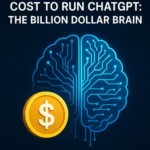According to a recent report, 99% of hiring managers are already using AI in some capacity in their hiring processes, with 98% reporting significant improvements in hiring efficiency (Insight Global, 2025).
The landscape of talent acquisition is undergoing a seismic shift, driven by the pervasive integration of Artificial Intelligence. The numbers speak volumes: a recent Insight Global report from 2025 reveals that an astounding 99% of hiring managers are already leveraging AI tools in some facet of their hiring processes, with a remarkable 98% attesting to significant gains in hiring efficiency. This compelling data underscores a profound transformation, signaling that the AI interviewer is no longer a futuristic concept but a present-day reality fundamentally reshaping how organizations identify, assess, and ultimately onboard talent in today’s competitive job market.
Table of Content
- The Rise of AI in Recruitment
- How AI Interviews Work
- Bias and Fairness in AI Hiring
- Preparing for AI Interviews
- Ethical Considerations and Future Outlook
- Conclusion: Embracing the Inevitable
The Rise of AI in Recruitment
AI’s rapid integration into hiring marks a major shift from traditional human-led recruitment. Unlike HR professionals who rely on intuition and conversation, AI systems use algorithms to quickly scan resumes and match keywords with job descriptions. This brings unmatched efficiency in processing large applicant pools but lacks the human ability to recognize potential beyond the data. As a result, candidates who don’t align perfectly with preset criteria may be overlooked despite strong soft skills or unique value.
AI’s adoption is not limited to tech companies. Industries ranging from healthcare to retail and finance now rely on AI tools to handle the early stages of recruitment. This shift demands a new kind of job-readiness—one that understands how machines interpret data.
Practice Tip: When applying for jobs, tailor your resume with keywords and phrases directly from the job description. AI-based ATS systems prioritize matches in terminology, increasing your chance of reaching a human reviewer. Also, avoid using overly creative formatting; simple, clear resumes are easier for ATS to parse.
How AI Interviews Work
“AI can analyse facial expressions, tone of voice, and word choice to assess a candidate’s fit.” — Harvard Business Review
AI interviews are often conducted through recorded video platforms where candidates respond to preset questions. The AI software then evaluates their responses using a combination of Natural Language Processing (NLP) and computer vision technology. It looks for patterns in vocabulary, sentence structure, sentiment, voice modulation, and facial expressions. These systems also analyse the pace of speech, eye movement, and even background distractions.
While these systems can identify communication skills and professionalism, they lack the ability to account for cultural differences or context-specific nuances. Moreover, the pressure of speaking into a camera without real-time human feedback can impact the performance of even highly qualified candidates.
Example: In HireVue, a widely used AI interview platform, the system may evaluate if you sound enthusiastic when talking about past experiences. Lack of enthusiasm—even with technically correct answers—could affect your overall fit score. Similarly, too much pausing or looking away from the camera may negatively impact your rating.
Practice Tip: Practice answering common interview questions on camera. Record yourself and pay attention to posture, pacing, tone, and facial expressions. Aim to be clear, confident, and consistent. Simulate a real interview setting to reduce anxiety and refine your delivery.
Bias and Fairness in AI Hiring

“AI is only as unbiased as the data it’s trained on.” — World Economic Forum
One major concern about AI in hiring is the risk of algorithmic bias. If the training data reflects historical discrimination, the AI may replicate those biases, disadvantaging certain groups. These could be based on gender, ethnicity, age, or even zip code. This becomes particularly dangerous when candidates are unaware of how they are being assessed or which metrics the AI prioritizes.
AI systems that are not regularly audited can reinforce systemic inequalities. Transparent and explainable AI is still an evolving field, and many platforms do not disclose the details of how their scoring algorithms work.
Example: Amazon had to scrap an AI recruiting tool in 2018 after it was found to be biased against women applicants. The system downgraded resumes containing words like “women’s chess club,” revealing how embedded bias in historical data can carry forward.
Practice Tip: Use platforms like LinkedIn to highlight certifications, volunteer work, or cross-functional skills. A strong digital presence can support your candidacy beyond just resume data. Keep your profiles updated and consistent across platforms.
Preparing for AI Interviews
“Preparation for AI interviews is more about structure and clarity than charisma.” — Business Insider
Unlike human interviewers, AI systems don’t appreciate wit or subtle humour. What they seek are structured responses, clear articulation of goals and outcomes, and measurable achievements. Therefore, your preparation should prioritize logical organization, relevant terminology, and data-backed storytelling.
Being camera-ready goes beyond appearance—it’s about presence. Eye contact with the webcam, clear audio, and a clutter-free background contribute to a positive impression. Remember, the AI evaluates both verbal and non-verbal cues.
Example: Instead of saying “I led a successful campaign,” say “I led a digital marketing campaign that boosted website traffic by 40% and increased conversion rates by 15% over three months.”
Practice Tip: Use the STAR (Situation, Task, Action, Result) method when crafting your responses to behavioral questions. Structure your answers like a mini-case study to improve clarity and impact. Rehearse aloud to smooth out your narrative flow.
Ethical Considerations and Future Outlook
“Regulators are beginning to explore rules for how AI can be used in hiring to protect candidates.” — Brookings Institution
As AI becomes more integrated into recruitment, ethical questions are emerging. Issues like transparency, data privacy, and informed consent are being addressed through new legislation and policy reforms. Candidates should be aware of their rights, how their data is used, and whether they are being evaluated solely by machines.
Globally, several countries are stepping in to regulate AI hiring tools. These laws aim to balance innovation with accountability, ensuring AI does not become a tool for hidden discrimination.
Example: In 2020, Illinois became the first U.S. state to require employers to notify applicants when AI will be used in video interviews and to explain how it works. Similar legislation is being considered in other regions to ensure fairness and transparency. The EU’s proposed Artificial Intelligence Act also includes provisions for high-risk applications such as hiring.
Practice Tip: Before agreeing to an AI interview, research the platform being used and check your rights under local regulations. Ask the employer for a human-led alternative if you’re uncomfortable with algorithm-only assessments. Being informed empowers you to make better choices.
Conclusion: Embracing the Inevitable
AI interviews are here to stay, and adapting to them is key for job seekers in the digital age. These systems are designed for efficiency, but they are not flawless. By understanding how they work, preparing responses accordingly, and advocating for ethical practices, you can navigate the new hiring landscape with confidence.
As job markets become more global and competitive, the reliance on automation will only increase. However, the human element—empathy, judgment, creativity—remains irreplaceable. Candidates who combine technical preparedness with emotional intelligence will stand out, even in an AI-dominated process.




























Leave a Reply